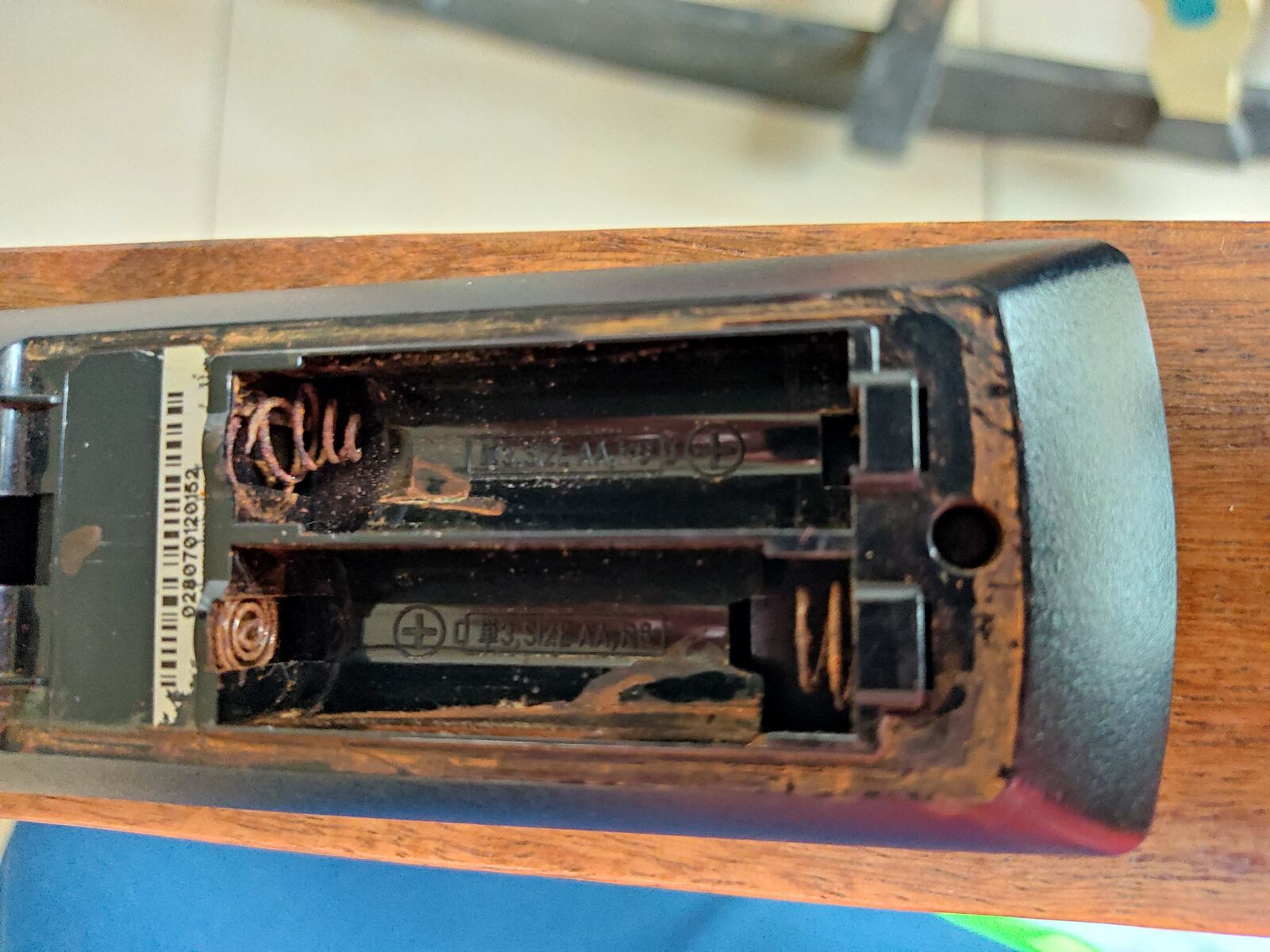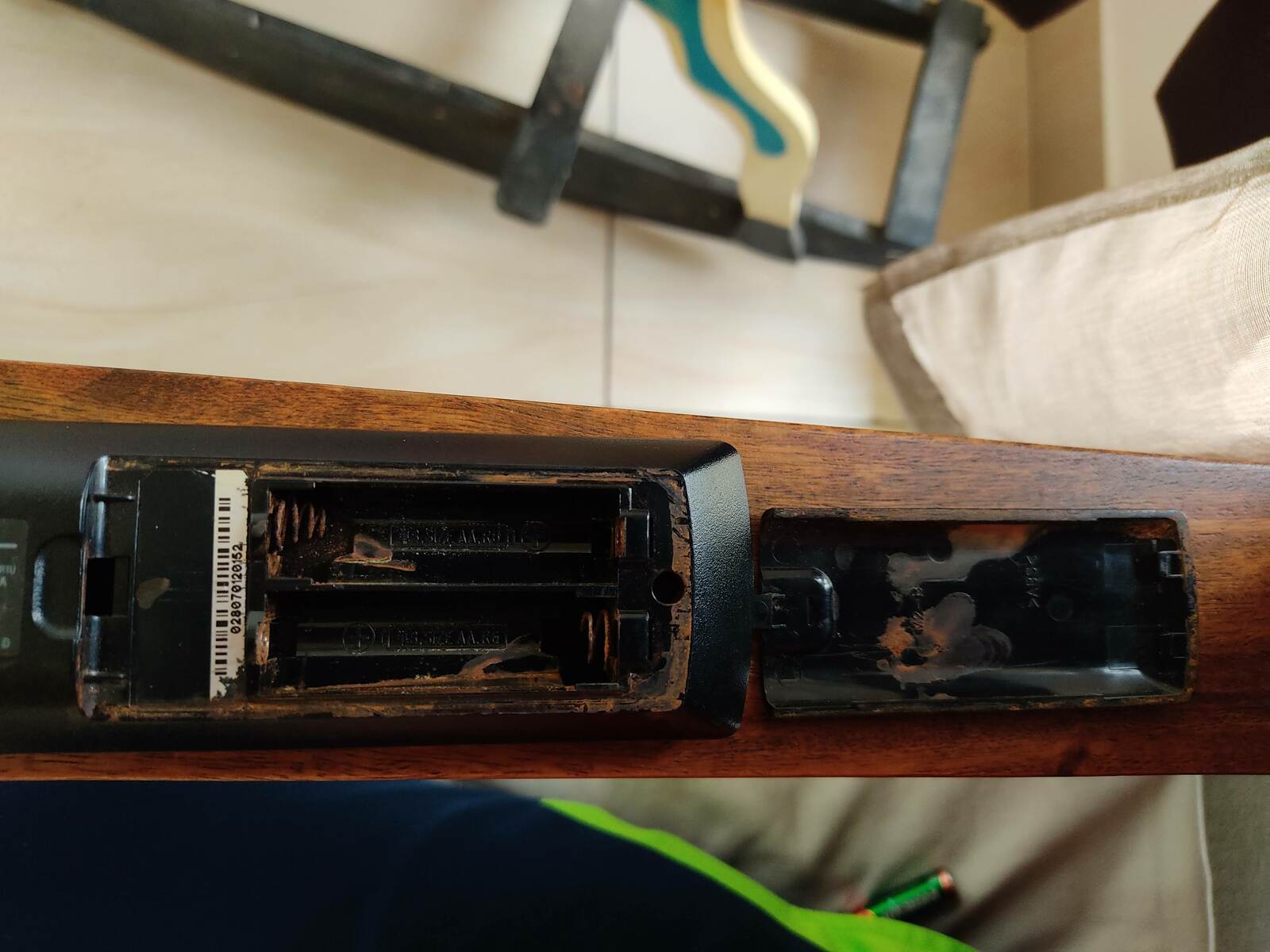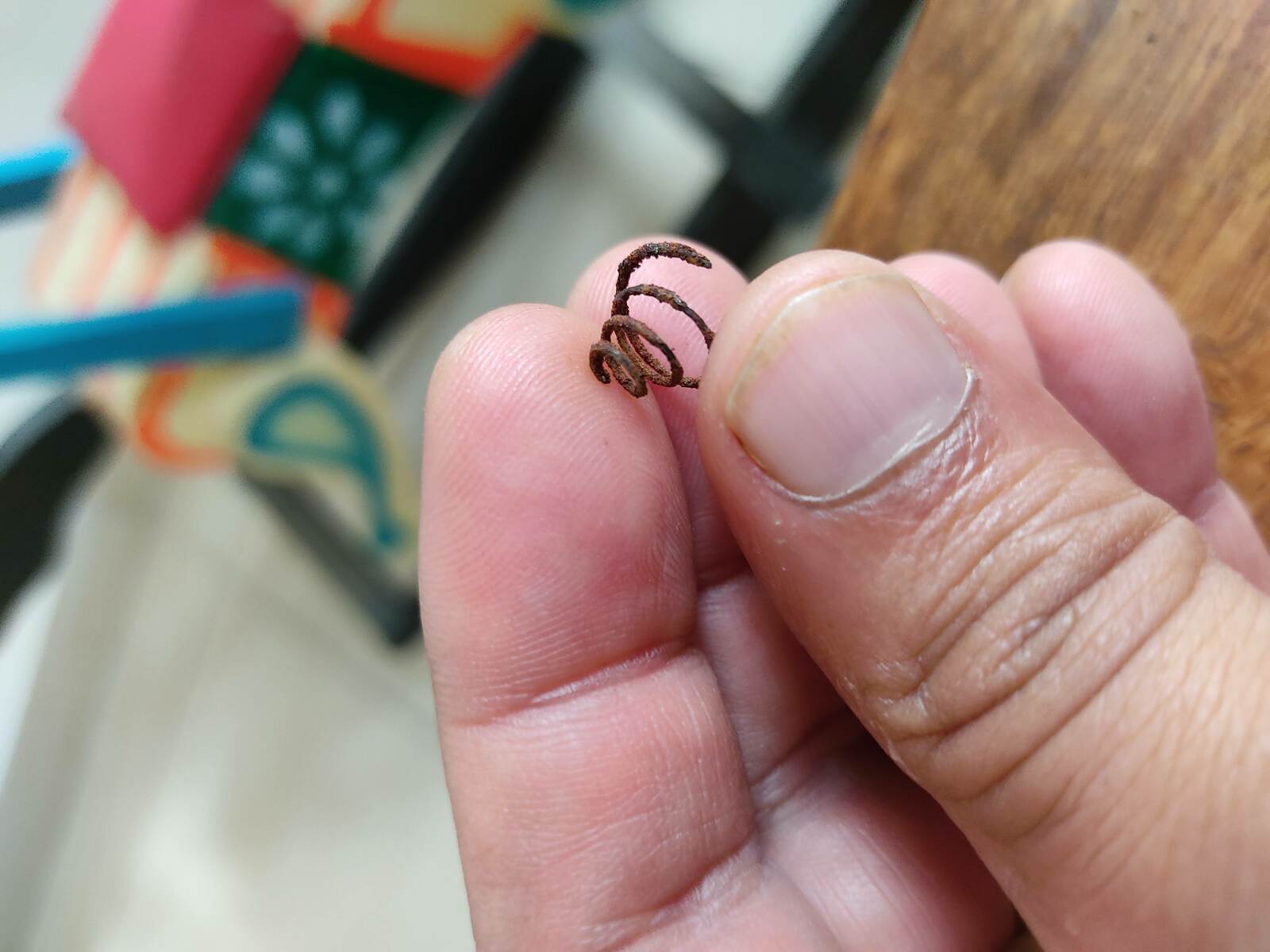Setting up a Sony PS3 Blu-Ray Disc Remote Controller with Kodi
TLDR; Since most of the articles on the internet were either obsolete or broken, I’ve chosen to write these notes down in the form of a blog post so that it helps me now and in future, and hopefully others too.
Raspberry Pi
All this time, I have been using the Raspberry Pi for my HTPC needs. The first RPi I acquired was in 2014 and I have been very very happy with the amount of support in the community and quality of the HTPC offering it has. I also appreciate the RPi’s form factor and the power consumption limits. And then, to add more sugar to it, it uses a derivative of Debian, Raspbian, which was very familiar and feel good to me.
Raspberry Pi Issues
So primarily, I use my RPi with Kodi. There are a bunch of other (daemon) services but the primary use case is HTPC only. RPi + Kodi has a very very annoying issue wherein it loses its audio pitch during video playback. The loss is so bad that the audio is barely audible. The workaround is to seek the video playback either way and then it comes back to its actual audio level, just to fade again in a while.
My suspicion was that it may be a problem with Kodi. Or at least, Kodi would have a workaround in software. But unfortunately, I wasted a lot of time in dealing with my suspicion with no fruitful result.
This started becoming a PITA over time. And it seems the issue is with the hardware itself because after I moved my setup to a regular laptop, the audio loss is gone.
Laptop with Kodi
Since I had my old Lenovo Yoga 2 13 lying on all the time, it made sense to make some more use of it, using as the HTPC. This machine comes with a Micro-HDMI Out port, so it felt ideal for my High Definition video rendering needs.
It comes stock with just Intel HD Video with good driver support in Linux, so it was quite quick and easy getting Kodi charged up and running on it. And as I mentioned above, the sound issues are not seen on this setup.
Some added benefits are that I get to run stock Debian on this machine. And I must say a big THANK YOU to the Debian Multimedia Maintainers, who’ve done a pretty good job maintaining Kodi under Debian.
HDMI CEC
Only after I decommissioned my RPi, I came to notice how convenient the HDMI CEC functionality is. Turns out no standard laptops ship CEC functionality onto them. Even the case of my laptop, which has a Micro HDMI Out port, but still no CEC capabilities. As far as I know, the RPi came with the Pulse-Eight CEC module, so obvious first thought was to opt for a compatible external module of the same; but it comes with a nice price tag, me not willing to spend.
WiFi Remotes
Kodi has very well implemented network interface for almost all its features. One could take the Yatse or Music Pump Kodi Remote Android applications that work very very well with Kodi.
But wifi can be flaky some times. Especially, my experience with the Realtek network devices hasn’t been very good. The driver support in Linux is okay but there are many firmware bugs to deal with. In my case, the machine will lose wifi signal/network every once in a while. And it turns out, for this machine, with this network device type, I’m not the only one running into such problems.
And to add to that, this is an UltraBook, which means it doesn’t have an Ethernet port. So I’ve had not much choice other than to live and suffer deal with it.
The WiFi chip also provides the Bluetooth module, which so far I had not used much. From my /etc/modprobe.d/blacklist-memstick.conf, all relevant BT modules were added to the blacklist, all this time.
rrs@lenovo:~$ cat /etc/modprobe.d/blacklist-memstick.conf
blacklist memstick
blacklist rtsx_usb_ms
# And bluetooth too
#blacklist btusb
#blacklist btrtl
#blacklist btbcm
#blacklist btintel
#blacklist bluetooth
21:21 ♒♒♒ ☺ 😄
Also to keep in mind is that the driver for my card gives a very misleading kernel message, which is one of the many reasons for this blog post, so that I don’t forget it a couple of months later. The missing firmware error message is okay to ignore, as per this upstream comment.
Jun 14 17:17:08 lenovo kernel: usbcore: registered new interface driver btusb
Jun 14 17:17:08 lenovo systemd[1]: Mounted /boot/efi.
Jun 14 17:17:08 lenovo kernel: Bluetooth: hci0: RTL: examining hci_ver=06 hci_rev=000b lmp_ver=06 lmp_subver=8723
Jun 14 17:17:08 lenovo kernel: Bluetooth: hci0: RTL: rom_version status=0 version=1
Jun 14 17:17:08 lenovo kernel: Bluetooth: hci0: RTL: loading rtl_bt/rtl8723b_fw.bin
Jun 14 17:17:08 lenovo kernel: bluetooth hci0: firmware: direct-loading firmware rtl_bt/rtl8723b_fw.bin
Jun 14 17:17:08 lenovo kernel: Bluetooth: hci0: RTL: loading rtl_bt/rtl8723b_config.bin
Jun 14 17:17:08 lenovo kernel: bluetooth hci0: firmware: failed to load rtl_bt/rtl8723b_config.bin (-2)
Jun 14 17:17:08 lenovo kernel: firmware_class: See https://wiki.debian.org/Firmware for information about missing firmware
Jun 14 17:17:08 lenovo kernel: bluetooth hci0: Direct firmware load for rtl_bt/rtl8723b_config.bin failed with error -2
Jun 14 17:17:08 lenovo kernel: Bluetooth: hci0: RTL: cfg_sz -2, total sz 22496
This device’s network + bt are on the same chip.
01:00.0 Network controller: Realtek Semiconductor Co., Ltd. RTL8723BE PCIe Wireless Network Adapter
And then, when the btusb module is initialed (along with the misleading driver message), you’ll get the following in your USB device listing
Bus 002 Device 005: ID 0bda:b728 Realtek Semiconductor Corp. Bluetooth Radio
Sony PlayStation 3 BD Remote
Almost 10 years ago, I bought the PS3 and many of its accessories. The remote has just been rotting in the shelf. It had rusted so bad that it is better described with these pics.
The rust was so much that the battery holding spring gave up.
A little bit scrubbing and cleaning has gotten it working. I hope it lasts for some time before I find time to open it up and give it a full clean-up.
Pairing the BD Remote to laptop
Honestly, with the condition of the hardware and software on both ends, I did not have much hopes of getting this to work. And in all the years on my computer usage, I hardly recollect much days when I’ve made use of BT. Probably, because the full BT stack wasn’t that well integrated in Linux, earlier. And I mostly used to disable them in hardware and software to save on battery.
All yielded results from the internet talked about tools/scripts that were either not working, pointing to broken links etc.
These days, bluez comes with a nice utility, bluetoothctl. It was a nice experience using it.
First, start your bluetooth service and ensure that the device talks well with the kernel
rrs@lenovo:~$ systemctl status bluetooth
● bluetooth.service - Bluetooth service
Loaded: loaded (/lib/systemd/system/bluetooth.service; enabled; vendor preset: enabled)
Active: active (running) since Mon 2020-06-15 12:54:58 IST; 3s ago
Docs: man:bluetoothd(8)
Main PID: 310197 (bluetoothd)
Status: "Running"
Tasks: 1 (limit: 9424)
Memory: 1.3M
CGroup: /system.slice/bluetooth.service
└─310197 /usr/lib/bluetooth/bluetoothd
Jun 15 12:54:58 lenovo systemd[1]: Starting Bluetooth service...
Jun 15 12:54:58 lenovo bluetoothd[310197]: Bluetooth daemon 5.50
Jun 15 12:54:58 lenovo systemd[1]: Started Bluetooth service.
Jun 15 12:54:58 lenovo bluetoothd[310197]: Starting SDP server
Jun 15 12:54:58 lenovo bluetoothd[310197]: Bluetooth management interface 1.15 initialized
Jun 15 12:54:58 lenovo bluetoothd[310197]: Sap driver initialization failed.
Jun 15 12:54:58 lenovo bluetoothd[310197]: sap-server: Operation not permitted (1)
12:55 ♒♒♒ ☺ 😄
Next, then is to discover and connect to your device
rrs@lenovo:~$ bluetoothctl
Agent registered
[bluetooth]# devices
Device E6:3A:32:A4:31:8F MI Band 2
Device D4:B8:FF:43:AB:47 MI RC
Device 00:1E:3D:10:29:0F BD Remote Control
[CHG] Device 00:1E:3D:10:29:0F Connected: yes
[BD Remote Control]# info 00:1E:3D:10:29:0F
Device 00:1E:3D:10:29:0F (public)
Name: BD Remote Control
Alias: BD Remote Control
Class: 0x0000250c
Paired: no
Trusted: yes
Blocked: no
Connected: yes
LegacyPairing: no
UUID: Human Interface Device... (00001124-0000-1000-8000-00805f9b34fb)
UUID: PnP Information (00001200-0000-1000-8000-00805f9b34fb)
Modalias: usb:v054Cp0306d0100
[bluetooth]#
In case of the Sony BD Remote, there’s no need to pair. In fact, trying to pair fails. It prompts for the PIN code, but neither 0000 or 1234 are accepted.
So, the working steps so far are to Trust the device and then Connect the device.
For the sake of future use, I also populated /etc/bluetooth/input.conf based on suggestions on the internet.
Note: The advertised keymappings in this config file do not work.
Note: I’m only using it for the power saving measures in instructing the BT connection to sleep after 3 minutes.
rrs@priyasi:/tmp$ cat input.conf
# Configuration file for the input service
# This section contains options which are not specific to any
# particular interface
[General]
# Set idle timeout (in minutes) before the connection will
# be disconnect (defaults to 0 for no timeout)
IdleTimeout=3
# Enable HID protocol handling in userspace input profile
# Defaults to false (HIDP handled in HIDP kernel module)
#UserspaceHID=true
# Limit HID connections to bonded devices
# The HID Profile does not specify that devices must be bonded, however some
# platforms may want to make sure that input connections only come from bonded
# device connections. Several older mice have been known for not supporting
# pairing/encryption.
# Defaults to false to maximize device compatibility.
#ClassicBondedOnly=true
# LE upgrade security
# Enables upgrades of security automatically if required.
# Defaults to true to maximize device compatibility.
#LEAutoSecurity=true
#
#[00:1E:3D:10:29:0F]
[2c:33:7a:8e:d6:30]
[PS3 Remote Map]
# When the 'OverlayBuiltin' option is TRUE (the default), the keymap uses
# the built-in keymap as a starting point. When FALSE, an empty keymap is
# the starting point.
#OverlayBuiltin = TRUE
#buttoncode = keypress # Button label = action with default key mappings
#OverlayBuiltin = FALSE
0x16 = KEY_ESC # EJECT = exit
0x64 = KEY_MINUS # AUDIO = cycle audio tracks
0x65 = KEY_W # ANGLE = cycle zoom mode
0x63 = KEY_T # SUBTITLE = toggle subtitles
0x0f = KEY_DELETE # CLEAR = delete key
0x28 = KEY_F8 # /TIME = toggle through sleep
0x00 = KEY_1 # NUM-1
0x01 = KEY_2 # NUM-2
0x02 = KEY_3 # NUM-3
0x03 = KEY_4 # NUM-4
0x04 = KEY_5 # NUM-5
0x05 = KEY_6 # NUM-6
0x06 = KEY_7 # NUM-7
0x07 = KEY_8 # NUM-8
0x08 = KEY_9 # NUM-9
0x09 = KEY_0 # NUM-0
0x81 = KEY_F2 # RED = red
0x82 = KEY_F3 # GREEN = green
0x80 = KEY_F4 # BLUE = blue
0x83 = KEY_F5 # YELLOW = yellow
0x70 = KEY_I # DISPLAY = show information
0x1a = KEY_S # TOP MENU = show guide
0x40 = KEY_M # POP UP/MENU = menu
0x0e = KEY_ESC # RETURN = back/escape/cancel
0x5c = KEY_R # TRIANGLE/OPTIONS = cycle through recording options
0x5d = KEY_ESC # CIRCLE/BACK = back/escape/cancel
0x5f = KEY_A # SQUARE/VIEW = Adjust Playback timestretch
0x5e = KEY_ENTER # CROSS = select
0x54 = KEY_UP # UP = Up/Skip forward 10 minutes
0x56 = KEY_DOWN # DOWN = Down/Skip back 10 minutes
0x57 = KEY_LEFT # LEFT = Left/Skip back 5 seconds
0x55 = KEY_RIGHT # RIGHT = Right/Skip forward 30 seconds
0x0b = KEY_ENTER # ENTER = select
0x5a = KEY_F10 # L1 = volume down
0x58 = KEY_J # L2 = decrease the play speed
0x51 = KEY_HOME # L3 = commercial skip previous
0x5b = KEY_F11 # R1 = volume up
0x59 = KEY_U # R2 = increase the play speed
0x52 = KEY_END # R3 = commercial skip next
0x43 = KEY_F9 # PS button = mute
0x50 = KEY_M # SELECT = menu (as per PS convention)
0x53 = KEY_ENTER # START = select / Enter (matches terminology in mythwelcome)
0x30 = KEY_PAGEUP # PREV = jump back (default 10 minutes)
0x76 = KEY_J # INSTANT BACK (newer RCs only) = decrease the play speed
0x75 = KEY_U # INSTANT FORWARD (newer RCs only) = increase the play speed
0x31 = KEY_PAGEDOWN # NEXT = jump forward (default 10 minutes)
0x33 = KEY_COMMA # SCAN BACK = decrease scan forward speed / play
0x32 = KEY_P # PLAY = play/pause
0x34 = KEY_DOT # SCAN FORWARD decrease scan backard speed / increase playback speed; 3x, 5, 10, 20, 30, 60, 120, 180
0x60 = KEY_LEFT # FRAMEBACK = Left/Skip back 5 seconds/rewind one frame
0x39 = KEY_P # PAUSE = play/pause
0x38 = KEY_P # STOP = play/pause
0x61 = KEY_RIGHT # FRAMEFORWARD = Right/Skip forward 30 seconds/advance one frame
0xff = KEY_MAX
21:48 ♒ ॐ ♅ ⛢ ☺ 😄
I have not spent much time finding out why not all the key presses work. Especially, given that most places on the internet mention these mappings. For me, some of the key scan codes aren’t even reported. For keys like L1, L2, L3, R1, R2, R3, Next_Item, Prev_Item, they generate no codes in the kernel.
If anyone has suggestions, ideas or fixes, I’d appreciate if you can drop a comment or email me privately.
But given my limited use to get a simple remote ready, to be usable with Kodi, I was apt with only some of the keys working.
Mapping the keys in Kodi
With the limited number of keys detected, mapping those keys to what Kodi could use was the next step. Kodi has a very nice and easy to use module, Keymap Editor. It is very simple to use and map detected keys to functionalities you want. With it, I was able to get a functioning remote to use with my Kodi HTPC setup.
Update: Wed Jun 17 11:38:20 2020
One annoying problem that breaks the overall experience is the following bug on the driver side, that results in connections not being established instantly.
Once the device goes into sleep mode, in random attempts, waking up and re-establishing a BT connection can be multi-poll affair. This can last from a couple of seconds to well over minute.
Random suggestions on the internet mention disabling the autosuspend functionality for the device in the driver with btusb.enable_autosuspend=n, but that did not help in this case.
Given that this device is enumberated over the USB Bus, it probably needs this feature applied to the whole USB tree of the device’s chain. Something to investigate over the weekend.
Jun 16 20:41:23 lenovo kernel: Bluetooth: hci0: ACL packet for unknown connection handle 7
Jun 16 20:41:43 lenovo kernel: Bluetooth: hci0: ACL packet for unknown connection handle 8
Jun 16 20:41:59 lenovo kernel: Bluetooth: hci0: ACL packet for unknown connection handle 9
Jun 16 20:42:18 lenovo kernel: input: BD Remote Control as /devices/pci0000:00/0000:00:14.0/usb1/1-7/1-7:1.0/bluetooth/hci0/hci0:10/0005:054C:030>
Jun 16 20:42:18 lenovo kernel: sony 0005:054C:0306.0006: input,hidraw1: BLUETOOTH HID v1.00 Gamepad [BD Remote Control] on 2c:33:7a:8e:d6:30
Jun 16 20:51:59 lenovo kernel: input: BD Remote Control as /devices/pci0000:00/0000:00:14.0/usb1/1-7/1-7:1.0/bluetooth/hci0/hci0:11/0005:054C:030>
Jun 16 20:51:59 lenovo kernel: sony 0005:054C:0306.0007: input,hidraw1: BLUETOOTH HID v1.00 Gamepad [BD Remote Control] on 2c:33:7a:8e:d6:30
Jun 16 21:05:55 lenovo rtkit-daemon[1723]: Supervising 3 threads of 1 processes of 1 users.
Jun 16 21:05:55 lenovo rtkit-daemon[1723]: Successfully made thread 32747 of process 1646 owned by '1000' RT at priority 5.
Jun 16 21:05:55 lenovo rtkit-daemon[1723]: Supervising 4 threads of 1 processes of 1 users.
Jun 16 21:05:56 lenovo kernel: Bluetooth: hci0: ACL packet for unknown connection handle 12
Jun 16 21:06:12 lenovo kernel: Bluetooth: hci0: ACL packet for unknown connection handle 1
Jun 16 21:06:34 lenovo kernel: Bluetooth: hci0: ACL packet for unknown connection handle 2
Jun 16 21:06:59 lenovo kernel: input: BD Remote Control as /devices/pci0000:00/0000:00:14.0/usb1/1-7/1-7:1.0/bluetooth/hci0/hci0:3/0005:054C:0306>
Jun 16 21:06:59 lenovo kernel: sony 0005:054C:0306.0008: input,hidraw1: BLUETOOTH HID v1.00 Gamepad [BD Remote Control] on 2c:33:7a:8e:d6:30
Others
There’s a package, kodi-eventclients-ps3, which can be used to talk to the BD Remote. Unfortunately, it isn’t up-to-date. When trying to make use of it, I ran into a couple of problems.
First, the easy one is:
rrs@lenovo:~/ps3pair$ kodi-ps3remote localhost 9777
usr/share/pixmaps/kodi//bluetooth.png
Traceback (most recent call last):
File "/usr/bin/kodi-ps3remote", line 220, in <module>
File "/usr/bin/kodi-ps3remote", line 208, in main
xbmc.connect(host, port)
packet = PacketHELO(self.name, self.icon_type, self.icon_file)
File "/usr/lib/python3/dist-packages/kodi/xbmcclient.py", line 285, in __init__
with open(icon_file, 'rb') as f:
11:16 ♒♒♒ ☹ 😟=> 1
This one was simple as it was just a broken path.
The second issue with the tool is a leftover from python2 to python3 conversion.
rrs@lenovo:/etc/bluetooth$ kodi-ps3remote localhost
/usr/share/pixmaps/kodi//bluetooth.png
Searching for BD Remote Control
(Hold Start + Enter on remote to make it discoverable)
Redmi (E8:5A:8B:73:57:44) in range
Living Room TV (E4:DB:6D:24:23:E9) in range
Could not find BD Remote Control. Trying again...
Searching for BD Remote Control
(Hold Start + Enter on remote to make it discoverable)
Living Room TV (E4:DB:6D:24:23:E9) in range
Redmi (E8:5A:8B:73:57:44) in range
Could not find BD Remote Control. Trying again...
Searching for BD Remote Control
(Hold Start + Enter on remote to make it discoverable)
BD Remote Control (00:1E:3D:10:29:0F) in range
Found BD Remote Control with address 00:1E:3D:10:29:0F
Attempting to pair with remote
Remote Paired.
Traceback (most recent call last):
File "/usr/bin/kodi-ps3remote", line 221, in <module>
main()
File "/usr/bin/kodi-ps3remote", line 212, in main
if process_keys(remote, xbmc):
File "/usr/bin/kodi-ps3remote", line 164, in process_keys
keycode = data.encode("hex")[10:12]
AttributeError: 'bytes' object has no attribute 'encode'
11:24 ♒♒♒ ☹ 😟=> 1
Fixing that too did not give me the desired result on using the BD Remote in the way I want. So eventually, I gave up and used Kodi’s Keymap Editor instead.
Next
Next in line, when I can manage to get some free time, is to improve the Kodi Video Scraper to have a fallback mode. Currently, for files where it cannot determine the content, it reject the file resulting in those files not showing up in your collection at all. A better approach would have been to have a fallback mode, that when the scraper cannot determine the content, it should fallback to using the filename scraper


